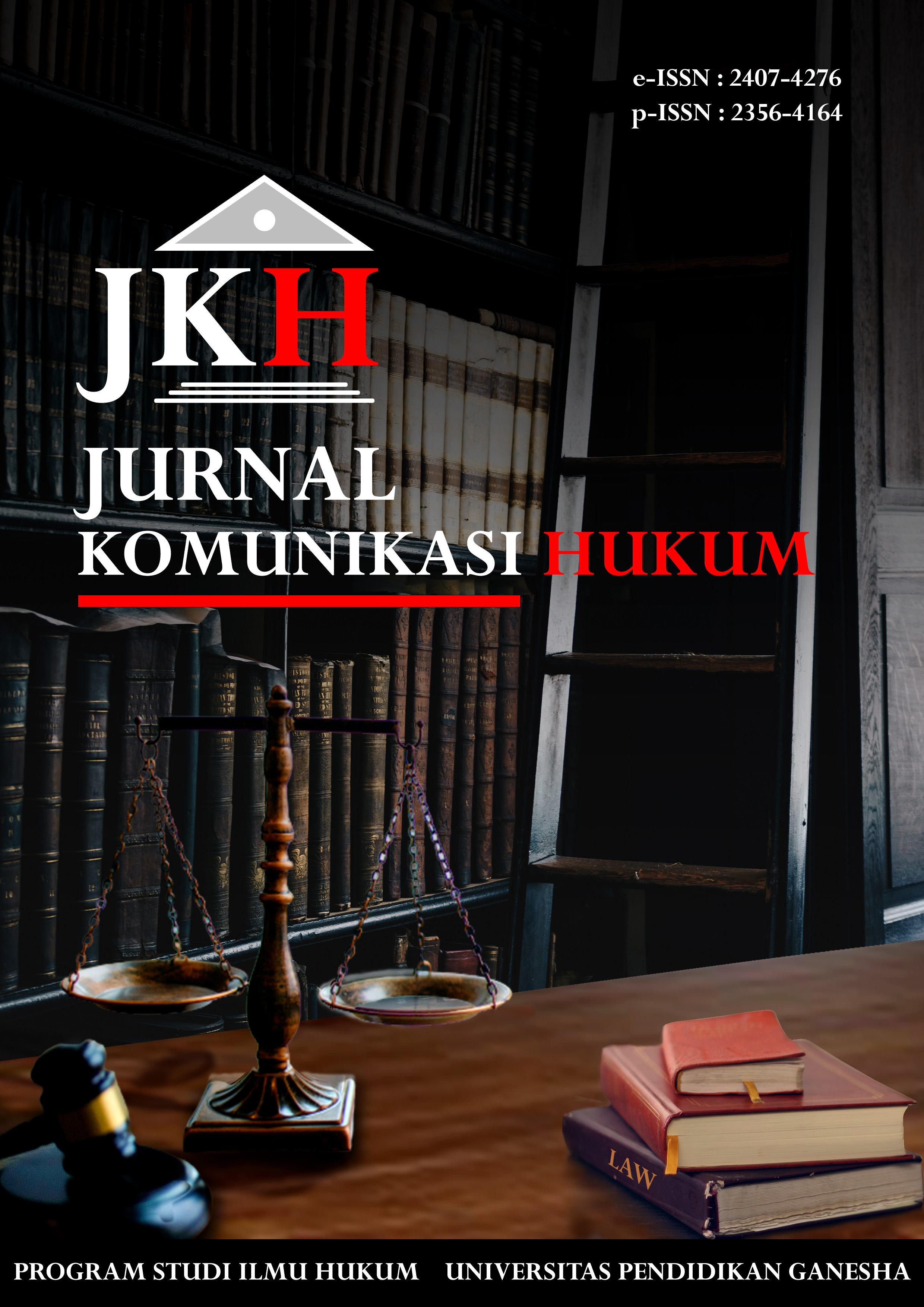Sanksi Hukum Bagi Pengawas Yayasan yang Lalai dalam Menjalankan Fungsinya Sebagai Organ Yayasan
DOI:
https://doi.org/10.23887/jkh.v7i1.31471Keywords:
Foundation, Supervisor, authority, sanctionsAbstract
A foundation is an institution that carries out religious, humanitarian and social activities that are formed by the community or the government. Law Number 16 of 2001 concerning Foundations as later amended by Law Number 28 of 2004 concerning amendments to Law Number 16 of 2001 concerning Foundations which provides certainty of the legal position of foundations as legal entities. Foundations do not have members, but have foundations consisting of coaches, administrators and supervisors who as legal subjects are capable of taking legal actions. The management of foundation assets is open in nature so that proper supervision is required. The Supervisory Organ has the authority to supervise the management of the Foundation by supervising financial reports, activity reports and their achievements which are written by the Management to be ratified in a supervisory meeting. These supervisors must have good faith in carrying out their authority, duties and responsibilities. The method used in this research is normative legal research using a statutory approach. The authority of a Supervisor is regulated in statutory regulations, however, legal sanctions if a Supervisor is negligent in carrying out the function are not completely stated. So that in order to avoid negligence in its function, it is necessary to have strict sanctions to avoid any harm to the Foundation, the state or related parties.
Downloads
Published
How to Cite
Issue
Section
License
Authors who publish with this journal agree to the following terms:- Authors retain copyright and grant the journal right of first publication with the work simultaneously licensed under a Creative Commons Attribution License that allows others to share the work with an acknowledgement of the work's authorship and initial publication in this journal.
- Authors are able to enter into separate, additional contractual arrangements for the non-exclusive distribution of the journal's published version of the work (e.g., post it to an institutional repository or publish it in a book), with an acknowledgement of its initial publication in this journal.
- Authors are permitted and encouraged to post their work online (e.g., in institutional repositories or on their website) prior to and during the submission process, as it can lead to productive exchanges, as well as earlier and greater citation of published work (See The Effect of Open Access).
Authors who publish with this journal agree to the following terms:
- Authors retain copyright and grant the journal right of first publication, with the work [SPECIFY PERIOD OF TIME] after publication simultaneously licensed under aCreative Commons Attribution License that allows others to share the work with an acknowledgement of the work's authorship and initial publication in this journal.
- Authors are able to enter into separate, additional contractual arrangements for the non-exclusive distribution of the journal's published version of the work (e.g., post it to an institutional repository or publish it in a book), with an acknowledgement of its initial publication in this journal.
- Authors are permitted and encouraged to post their work online (e.g., in institutional repositories or on their website) prior to and during the submission process, as it can lead to productive exchanges, as well as earlier and greater citation of published work (See The Effect of Open Access).












